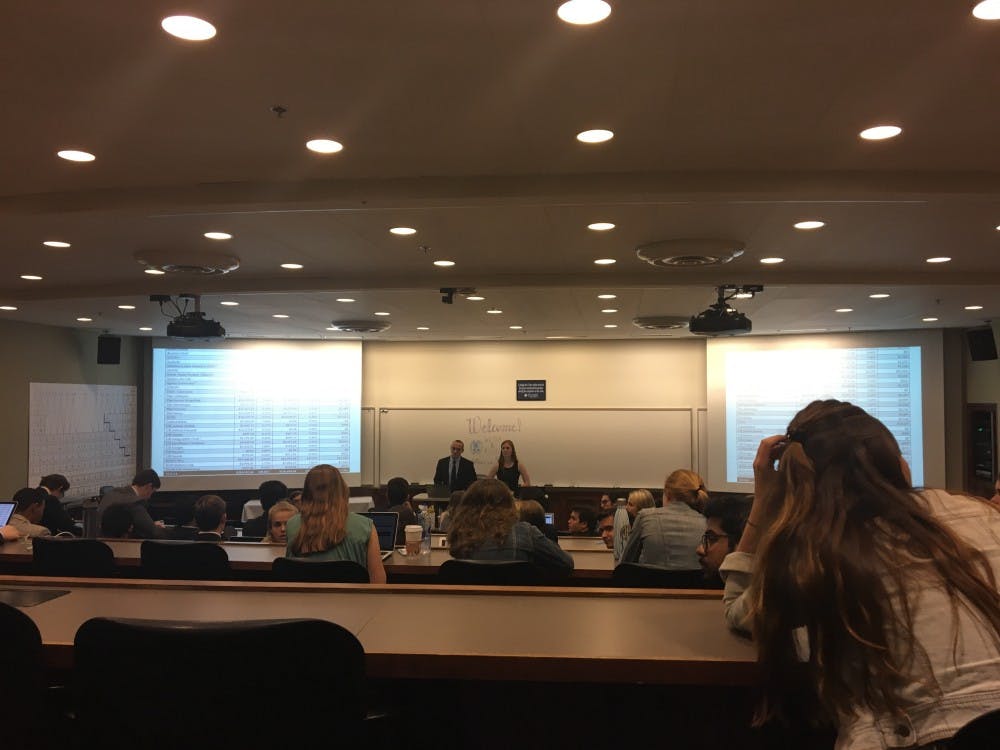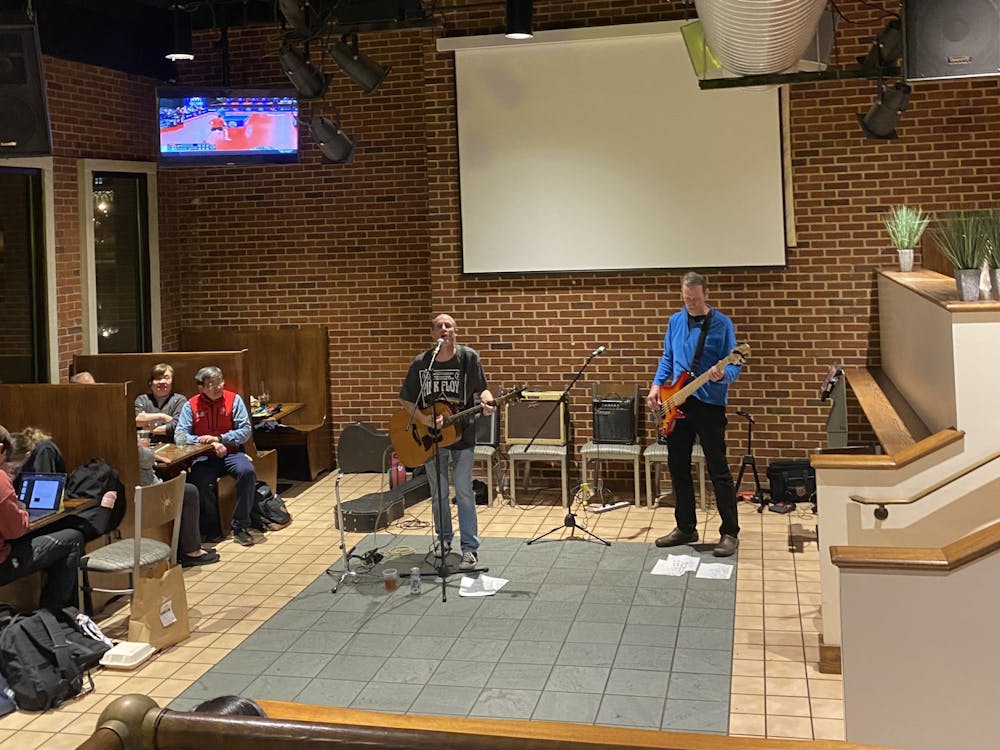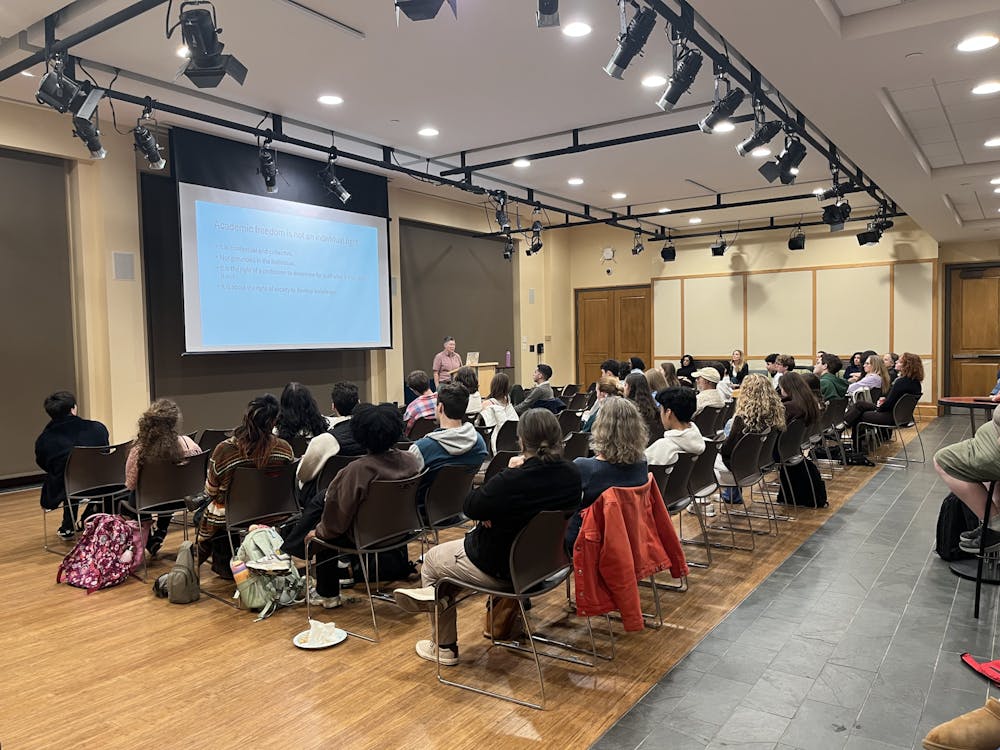The Student Organization Budget and Appropriation Committee’s presentation last spring on its large budget deficit to the Student Development Leadership Team did not result in increased funding for this upcoming school year.
The SDLT is a Faculty Senate committee composed of voting faculty members and ex officio members such as the academic deans. The SDLT decides changes to campus administrative structures.
SOBAC leadership changed this academic year, and the new co-chairs provided insight into the intent behind the presentation.
“[The former co-chairs] actually never formally requested money,” said junior Rebecca Fagan, SOBAC co-chair. “It was more of an information presentation that they gave to a group of people from the school to show that there is a need for more funding, but they weren’t explicitly asking for it.”
Although funding was not increased, the presentation brought awareness of SOBAC’s needs to faculty members, Fagan said.
“I think the conversation has started,” she said. “People recognize, yes, there is a need, and if we gather more data, then maybe one day we will be able to increase [the budget].”
Junior AJ Polcari, SOBAC co-chair, said more data needed to be gathered before SOBAC could formally request more funding.
“We need more information so we can present to them and say this is how much we need, why we need it," Polcari said, "because everything is done by data now."
Vittoria Tripp, SOBAC faculty adviser, confirmed that the SOBAC chairs did not request increased funding during the SOBAC presentation in April and said that more data was needed before that could happen.
“I think our next steps are to continue collecting the data that we started this last year,” Tripp said. “And that’s really the driving force I think of how we create that number at some point. We have to be able to prove what students are doing with this money.”
Steve Bisese, vice president for student development and SDLT member, said SOBAC’s budget had been increased in 2016.
“So just three years ago, [the Division of Student Development joined by staff members from the Center for Student Involvement] went through this process and got an additional amount of money,” Bisese said.
Enjoy what you're reading?
Signup for our newsletter
Bisese later confirmed in an email that SOBAC received a $50,000 increase in 2016.
Bisese said this increase had been partly to make up for a general increase in the cost of living.
“Anybody who uses, for example, food and transportation, the cost of these things go up each year,” he said. “So that’s why every so often, like in 2016, which is just three years ago, we went to correct for that.”
Bisese said SOBAC’s presentation had encouraged him to find ways to support student organizations in non-monetary ways. He said the opening of the Multicultural Space where student organizations could meet and having more large-scale non-Greek-life events were examples of this effort.
“My hope is that relieving the stress from the large-scale things trickles down to help smaller organizations because those groups aren’t asking for as much,” Bisese said.
Alison Keller, director of the Center for Student Involvement, said she was also thinking of different ways to create more opportunities without increasing funds.
“You just don’t get more money,” she said. “The middle step is to really evaluate, are we doing everything, should we be looking at other things and the way we are doing them to see if there’s a better way to maximize our dollars.”
The former SOBAC co-chairs, Page Soper and Muhammad Coovadia, had presented to SDLT on Keller’s recommendation, she said.
“I challenged them, as the person who is the director, to think about the SOBAC process and give an analysis of what they learned as leaders and to give recommendations as their legacy,” Keller said.
Keller said student leaders benefited from the process of applying for funding for their organizations.
“The skill set that a student leader learns from understanding this process will benefit them for the rest of their lives, so I am unapologetic for it,” Keller said. “I think it’s great. When you get out of school and get your first job, there is a finite amount of money you have to work with.”
Junior Glenn Rose, president of the Outdoors Club, said he had been shocked by the funding his club was allocated compared with the funds he was given at the previous university he attended.
“I am a transfer student, and I transferred from University of New England, a pretty small school,” he said. “We don’t have as big of an endowment as this school, but what I find interesting is I was on the budgeting committee for that student council and we had close to a $900,000 budget to work with clubs.”
SOBAC cut funds provided for travel expenses during its last allocation process, Fagan confirmed in an email. Fagan said SOBAC based the amount they funded each organization on the percentage of the total request that involved travel.
"The higher the percentage, the higher amount we required each club to finance themselves," Fagan said in the email.
Rose said he disagreed with the decision SOBAC made to cut funding allocations for travel expenses.
“They had decided that they were going to cut all travel expenses from organizations so that they could promote more on-campus activity,” he said. “But if you talk to all the students at the university, a lot of them will say that the ‘Richmond bubble’ is in effect, and it’s real. And people really value activities that get them off campus.”
Senior Callie Cinque, president of The SEEDS Project, also found it problematic that transportation expenses were cut.
“Our entire trip is travel,” she said. “Our biggest expenses are flights and buses.”
Cinque said SEEDS was looking into other ways to get funding now.
“We have an advisory board made up of people within CSI and [the Bonner Center for Civic Engagement] that have been working with us to see if we can get long-standing funding from places on campus that have given us donations,” Cinque said.
Cinque said it was difficult for SEEDS to find viable supplements for funding. Grants removed from the university are hard to get because SEEDS is a student-led organization, she said.
Contact news writer Emma Davis at emma.davis@richmond.edu.
Support independent student media
You can make a tax-deductible donation by clicking the button below, which takes you to our secure PayPal account. The page is set up to receive contributions in whatever amount you designate. We look forward to using the money we raise to further our mission of providing honest and accurate information to students, faculty, staff, alumni and others in the general public.
Donate Now



